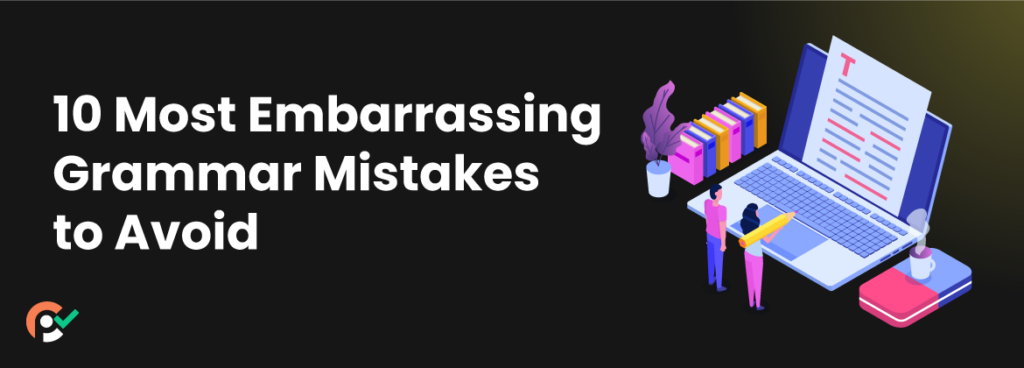
10 Most Embarrassing Grammar Mistakes to Avoid
Grammar is considered the groundwork for effective communication. In recent times, many businesses have chosen online platforms for selling their products and services. Therefore, good grammar skills plays an effective role in communication.
The usage of incorrect grammar will always lead to embarrassment. It’s understandable that without interacting with anyone, it’s not possible to run a business. You need a strong grip on grammar because people judge a business’s authenticity with its owner’s personality and skills. You can hire a workforce that can communicate on behalf of your company, but it doesn’t mean you don’t have to pay attention to your own flaws.
If you are feeling hesitant that you would need to attend an English class to work on your grammatical mistakes, then you’re wrong. Some simple tips will enable you to polish your grammar. We have come up with this article to let people know about the 10 most embarrassing grammar mistakes that you should avoid in written communication. These mistakes can leave the wrong impression on the readers’ minds, and your message might not get delivered the way you want. Hence, you should look into them to learn how to save yourself from communicating ambiguously. So without any further ado, let’s get started!
1. Comma Splices
Adjoining two independent clauses with a comma leads to the comma splice, which is considered a punctuation mistake.
“I am not sad, I am not happy, either.” In this sentence, two independent sentences are connected with a comma splice. It can be rectified with the addition of a connector. “I am not sad, but I am not happy, either.” The connector “but” rectifies the mistake and makes the sentence readable.
2. Using “I” at the End of Sentence
The usage of “I” at the end of a sentence, besides being incorrect, also feels cumbersome. For instance, “she talked to I” sounds awkward. But the correct usage of a pronoun will make the sentence smooth. The example discussed earlier can be rectified with me “She talked to me.”
3. Comma Before “That”
Using a comma before “that” in a sentence is an error. This error can be rectified in two ways. You can either simply remove the comma or use which instead of that. A comma should come before “which,” but it cannot be used with that.
4. Confusing Between “That,” “Which,” and “Who.”
A common mistake observed in writing is that a person is referred to with “which” and “that.” A person should be described with “who” instead of the other two that are mostly used to introduce things.
Incorrect: “Peter is the person that won the competition.”
Correct: “Peter is the person who won the competition.”
5.Using “Could of”
Could of is never correct, no matter what the sentence is. The correction to this grammatical issue is “could have.”
Incorrect: “She could of won the title.”
Correct: “She could have won the title.”
6. First Come, First Serve
This idiom is often seen around, but most of the time, it’s used incorrectly. In actual, the idiom is “first come, first served,” which explains that whoever comes first will be given priority over others. However, its inaccurate usage leaves the wrong impression on the reader that whoever comes first will have to serve first, as it changes the whole meaning.
7. Using for with e.g.
E.g. is the abbreviation for a Latin word that translates into “for example.” Many people make the mistake of using for with e.g., and it’s incorrect because the phrase already contains the word for. You can either use “for example” or “e.g.” alone in a sentence.
8. “Then” and “Than”
Then is used to describe time, whereas than is used to make comparisons. People often get confused while deciding upon using then or than.
Incorrect: “I woke up at 6, than I went for a walk.”
Correct: I” woke up at 6, then I went for a walk.”
9. Irregardless
There’s no such word as irregardless that exists. The correct word is regardless, which means anyhow.
10. Choose and Chose
Choose is a verb in its present form, whereas chose is the past form of the verb. Many people mistakenly write chose in the present form of sentences that’s not correct.
Incorrect: “Chose the best answer.”
Correct: “Choose the best answer.”
Conclusion!
These are the 10 common grammatical mistakes that could lead you nowhere but to embarrassment. You don’t have to take special classes to learn about how to rectify them. The information discussed above may help you in polishing your grammar skills and you can also take the assistance of an online grammar check tool.







